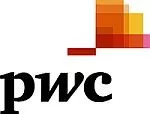"The SEP Order defines the threshold above which a non-resident with no physical presence in Nigeria, may be required to pay tax on the profits it derives from Nigeria"
Introduction
When the Finance Act 2019 (FA 2019) was passed into law earlier this year, Nigeria made it clear that it would start to tax some non-resident companies that do not have a physical presence in Nigeria but earn revenues from Nigeria. According to FA 2019, these companies would be taxable in Nigeria if they create a Significant Economic Presence (SEP). The FA 2019 did not define what constitutes an SEP, but it empowered the Minister of Finance (The Minister) to do so through an Order. The Minister has now issued the Companies Income Tax (Significant Economic Presence) Order 2020 (SEP Order) to do just that. The Order has an effective date of 3 February 2020.
In this article, we will outline the key provisions of the SEP Order and share our thoughts on some of the issues that may arise from the implementation of the Order.
What types of business activities are affected?
Two broad categories of non-resident companies are affected by FA 2019. The first category includes companies involved in digital transactions from outside Nigeria. The second category consists of foreign based providers of technical, professional, management or consultancy (TPMC) services.
The rule in FA 2019 is that these companies will be liable to tax in Nigeria if their activities constitute an SEP in Nigeria. We will briefly explain the conditions under which the companies in each category will create an SEP in Nigeria as prescribed by the SEP Order.
Under what conditions will non-resident providers of digital services create an SEP in Nigeria?
Broadly speaking, there are three ways that a nonresident provider of digital services can create an SEP in Nigeria.
The first is where it earns revenues in excess of N25 million from specific activities. These activities include: providing digital content or streaming services (including videos, music, applications, games etc.) to a person in Nigeria; transmitting data generated by Nigerian users on websites or mobile applications; direct and indirect sales of goods and services through a digital platform; and providing intermediation services like online marketplaces through a digital platform.
The second is where it uses a Nigerian domain name (meaning its website has a ".ng" in the name) or registers a website in Nigeria.
OECD's Inclusive Framework) are debating a uniform approach to this issue with the goal of reaching an agreement by the end of 2020.
The last instance is when it has a purposeful and sustained interaction with Nigerian customers by customising its website or digital platform to target persons in Nigeria. An example of this is where it displays its prices in naira or provides billing or payment options in naira.
Under what conditions will non-resident providers of TPMC services create an SEP in Nigeria?
A non-resident TPMC company will have an SEP in Nigeria if it earns any income or receives any payment from a person resident in Nigeria. It will also create an SEP in Nigeria if the payment or income is received from a fixed base or agent of another non-resident company. The SEP Order however excludes certain payments from this rule. One example is a payment that is made by the foreign fixed base of a Nigerian resident company for TMPC services.
Interestingly, the SEP Order expands the definition of technical services to include advertising services, training, and the supply of personnel. It is debatable whether this is in line with the provisions of the FA 2019.
What compliance obligations will the affected companies have?
The two categories of companies affected by the SEP Order will have different compliance obligations. Non-resident digital companies that are affected by the SEP Order will have to register for Nigerian income taxes, file income tax returns, and remit taxes to the Federal Inland Revenue Service (FIRS). In order to do this, these companies must first determine the profits that are attributable to the relevant activities. This exercise may not be a straightforward exercise. We envisage that disputes may arise from what could be different interpretations of the attribution rule in the future.
For non-resident TPMC companies, the Finance Act provides that WHT is the final tax. If the current practice holds, these companies may not need to register for and file income tax returns in Nigeria. However, since the WHT rate is 10%, such companies will effectively suffer a 10% turnover tax on Nigerian sales. This will apply regardless of whether the transaction is profitable or not.
Impact of international agreements
Nigeria is not the only country that wants to tax nonresident digital service providers. Tax authorities around the world (under the auspices of the OECD's Inclusive Framework) are debating a uniform approach to this issue with the goal of reaching an agreement by the end of 2020.
In recognition of this, the SEP Order provides that if Nigeria enters into any multilateral agreement in this regard, the provisions of that agreement or arrangement will apply (and effectively override the provisions of the SEP Order) for the companies that are covered by such agreement.
On another note, we would also expect that, based on treaty supremacy principles, non-resident companies that operate from a country that has a Double Tax Treaty (DTT) with Nigeria, should not be affected by the SEP rules until changes are made to the DTT.
Potential issues with implementation of the law
The FIRS may struggle to enforce compliance without support from the home country of the non-resident companies that are affected by these new rules. Since these companies do not have a physical presence in Nigeria, it may be difficult to compel them to pay the tax. The fact that some of these companies will be selling their products and services directly to the final consumers in Nigeria rather than to other businesses that are registered for tax may also worsen this situation.
In addition, these companies may simply opt to pass the burden of the tax to their Nigerian customers by increasing their prices. This could effectively result in an increase in the tax burden for Nigerian consumers. Whether or not this will happen will however depend on several factors including the bargaining power of the parties to the transaction, the level of competition in the market, etc.
Conclusion
Nigeria has joined other countries that have taken unilateral action to tax the digital economy. The SEP Order defines the threshold above which a nonresident service provider, that does not have a physical presence in Nigeria, will be required to pay tax on the profits it derives from Nigeria.
Non-resident companies will need to assess how the rules affect them and take steps to comply where necessary. This will also apply to Nigerian resident companies that transact with them. To improve compliance and reduce uncertainty for taxpayers, the FIRS is encouraged to introduce simplified registration and compliance processes for affected companies. The FIRS should also consider clarifying its position on how profits will be attributed to the activities of the digital service companies. This can help to reduce future disputes.
The content of this article is intended to provide a general guide to the subject matter. Specialist advice should be sought about your specific circumstances.


